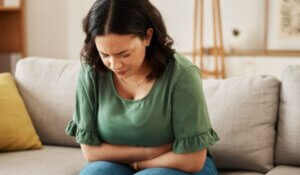 Ulcerative proctitis is a condition that affects the rectum, the final part of the large intestine. It occurs when the rectum becomes inflamed, and ulcers develop. This condition is a form of ulcerative colitis, a type of inflammatory bowel disease (IBD).
Ulcerative proctitis is a condition that affects the rectum, the final part of the large intestine. It occurs when the rectum becomes inflamed, and ulcers develop. This condition is a form of ulcerative colitis, a type of inflammatory bowel disease (IBD).
The exact cause of ulcerative proctitis, as well as ulcerative colitis and other types of inflammatory bowel disease, is still unknown, but several ideas exist. These conditions are believed to be related to the immune system, which mistakenly attacks the healthy tissues in the digestive tract.
Researchers have identified over 100 genes that might play a role in the development of IBD. However, genetics alone do not completely explain why ulcerative proctitis occurs. Experts also now believe that environmental triggers play a role in disrupting the balance of bacteria in the colon. This disruption can lead to the formation of ulcers in the intestinal lining.
Can Inflammatory Bowel Disease (IBD) go away on its own?
IBD is a long-term disease that alternates between times when there are active symptoms and times of remission with few or no symptoms. It’s essential to try and manage the inflammation to prevent symptoms from appearing or worsening. There are various kinds of remission, but the main goal is to keep the inflammation in check.
Is ulcerative procitis the same as ulcerative colitis?
Ulcerative proctitis impacts only the rectum, whereas ulcerative colitis can affect the entire colon. However, both are considered subtypes of irritable bowel disease (IBD). Ulcerative colitis often starts as ulcerative proctitis. However, as time goes on, other parts of the colon can also become inflamed. Among those with ulcerative colitis, around 30% to 60% are first diagnosed with ulcerative proctitis.
Recognizing the Symptoms: What to Look Out For

Ulcerative colitis and ulcerative proctitis usually cause diarrhea, but they can sometimes lead to constipation instead. Constipation means having hard stools that are tough to pass. Some people with proctitis might experience this issue.
Symptoms of ulcerative proctitis can range from mild to severe, impacting a person’s quality of life differently.
Diagnosis: How Ulcerative Proctitis is Identified
Ulcerative proctitis is often diagnosed using either a sigmoidoscopy or colonoscopy, both of which are types of endoscopy. During these procedures, a flexible tube with a camera and light is inserted into the rectum to check for signs of disease. These tests allow doctors to see inside the rectum and/or colon to examine the lining and look for any abnormalities. Small tissue samples, called biopsies, can be taken during the endoscopy. These samples are then studied to understand what changes, if any, are happening in the cells.
Does being Ashkenazi increase the risk of ulcerative proctitis?
Studies have shown that people of Ashkenazi (Eastern European Jewish) descent have a higher likelihood of having inflammatory bowel disease. People with Ashkenazi genes have a higher lifetime risk of developing IBD than those from other population groups. There is a roughly 8% risk for Crohn’s disease and about 4.5% for ulcerative colitis, compared to 5% and 1.6% for those without Ashkenazi genes, respectively.
Exploring Treatment Options
Treatment for ulcerative proctitis focuses on two main goals. The first is to reduce the inflammation quickly (known as remission). The second is to prevent the inflammation from returning over time.
Doctors might first suggest topical medications that work directly on the affected area to treat rectal issues. These medications can be administered as an enema or a suppository. One frequently prescribed is Asacol (mesalamine), a 5-aminosalicylate (5-ASA) medication.
Some of the other frequently prescribed systemic medications for UC are:
- Imuran (azathioprine): a type of medication known as an immunosuppressant used to reduce the activity of immune system cells.
- Neoral/Sandimmune: used to induce remission in acute severe ulcerative colitis.
- Remicade (infliximab): reduces the effects of a substance in the body that causes inflammation
- Stelara (ustekinumab): a monoclonal antibody prescribed for treating Crohn’s disease and ulcerative colitis.
There is little evidence supporting the use of alternative treatments for ulcerative proctitis. However, alternative treatments or supplements could be an option if the usual treatments don’t help the condition go into remission.
Causes of Ulcerative Proctitis Flare-Ups
For those with UP, sometimes symptoms can become quite severe, which doctors refer to as “flare-ups.” Some foods can cause these flare-ups, but the specific foods that trigger symptoms can vary from person to person. However, some common foods tend to trigger symptoms for many people.
Foods high in fiber, especially those with insoluble fiber like the skin of an apple, may cause discomfort. Dairy products such as milk and ice cream contain lactose, which some people struggle to digest. Sugary treats like cookies and drinks like sodas, along with high-fat foods such as butter, cheese, and fried dishes, can also be problematic. Spicy foods, caffeinated beverages like coffee and colas, alcohol, and products with artificial sweeteners are other common culprits that might upset the stomach.
There’s no one-size-fits-all diet for everyone with ulcerative colitis, and the condition can evolve over time. This means diet plans for the condition need to be adaptable as well. The important thing is to discover what works best for each patient.
To figure out what foods might be causing problems, try keeping a food diary, also known as a food journal. After each meal or snack, write down what was eaten. Then, separately, note any symptoms felt that day. This can help to look for patterns. For instance, if a symptom is flaring each time something spicy is eaten, that’s a clue that these foods might be causing issues, so it might be best to avoid them.
Lifestyle and Dietary Recommendations
For those with ulcerative proctitis, being mindful of diet is important. Even though food doesn’t cause it, certain foods can trigger flare-ups. So, how can one avoid these triggers and still get enough nutrients? A well-planned diet can be really helpful.
What can I eat with ulcerative proctitis?

For some people, other diets could be a better fit, but they should only be followed with guidance from a doctor or a registered dietitian.
What foods should I avoid with ulcerative proctitis?
For people with ulcerative proctitis, certain foods can cause problems. Foods like dried beans, peas, legumes, and dried fruits can be troublesome. Anything containing sulfur or sulfate and high-fiber foods like certain raw fruits and vegetables might cause discomfort. Meats, nuts, crunchy nut butters, and popcorn are also on the list of potential triggers. Be cautious with sorbitol products, such as sugar-free gum and candies, as well as refined sugar. Seeds and spicy foods can also cause issues for those with these conditions.
Can I drink alcohol with ulcerative proctitis?
Alcohol might lead to issues because alcohol can affect the gut. It allows bacteria and toxins to pass more easily through the gut lining, which can cause inflammation and potential flare-ups.
Can I drink coffee with ulcerative proctitis?
Many people with ulcerative colitis report that drinking coffee, which contains a lot of caffeine, worsens their symptoms. As a result, doctors often advise patients to steer clear of caffeine.
Should I take supplements for ulcerative proctitis?
It’s best to get all the vitamins, minerals, and nutrients the body needs by eating a balanced diet. However, when managing flare-ups, people might need to avoid some nutritious foods. If this happens, a doctor might advise taking dietary supplements to make up for the missing nutrients.
Healthy Eating Habits for Ulcerative Proctitis
Adopting healthy eating habits can help manage ulcerative colitis. Try eating smaller meals throughout the day rather than three large ones. If more fruits and vegetables are introduced into the diet, do so gradually to avoid triggering symptoms.
Stay well-hydrated by drinking plenty of water, especially if experiencing symptoms and using the bathroom frequently, as this can lead to dehydration. When eating out, check the restaurant menu online beforehand to ensure there are foods that are “safe.”
Although the diagnosis can be troubling, living a fulfilling life with ulcerative proctitis is achievable. There are various treatments available that can reduce the inflammation and help prevent it from worsening, allowing individuals to manage their condition effectively.
It’s important to collaborate with healthcare providers for regular monitoring. Understanding ulcerative proctitis and knowing what to expect is crucial. It’s helpful to ask a gastroenterologist questions and connect with other patients to learn more.
















